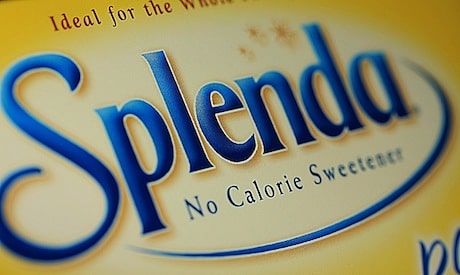
Of all the artificial sweeteners, Splenda (sucralose) has earned the reputation as being one of- if not the healthiest, or rather, "safest" of the bunch because it originates from sugar. A guilt-free sweetener that actually comes from sugar? Sounds too good to be true, and more research says that's exactly the case.
Artificial sweeteners are on our Scary Seven list of food ingredients to avoid for a reason; they're harmful chemicals that trick your body and put you at risk. Sucralose is no exception, and here's more evidence to that effect.
Read more about the Scary Seven
Pointing towards the dangers of sucralose and why it should be avoided at all costs is a recent study (entitled "Sucralose, a synthetic organochlorine sweetener: overview of biological issues") published in the recent issue of the journal Toxicology and Environmental Health.
According to the paper, the researchers found new causes for concern over the widespread use of sucralose. One of the issues is the way sucralose alters metabolic function. Its effects on body weight are "unknown", but it may raise blood sugar, spike insulin levels and lead to diabetic conditions, noted the study authors. The researchers also found that sucralose may negatively impact the microbiome by reducing beneficial bacteria colonies in the digestive tract, leading to weight issues and digestive disturbances.
But perhaps most startling is that the researchers found that the artificial sweetener was also linked with serious risks of creating dioxins when exposed to heat "in the presence of glycerol." One of the most common places where glycerol turns up is in low-fat foods, which are also good candidates for sucralose. So, for example, take a low-fat cookie or brownie that contains both glycerol and sucralose. It's baked at high heat–and now you've got room for dioxins to accumulate. Dioxins are incredibly toxic-they're considered "persistent organic pollutants" because they're slow to break down, sometimes highly resistant. They're also linked with cancer.
Read more about the dangers of dioxins
It's no wonder that the Center for Science in the Public Interest recently downgraded Splenda and sucralose from its "safe" rating to "caution" based on research that connected the sweetener with an increased risk of developing leukemia.
Will there be more research pointing to the dangers of sucralose? Probably. And it's all the more reason to make sure artificial sweeteners remain out of your diet no matter how safe the manufacturers tell you they are.




